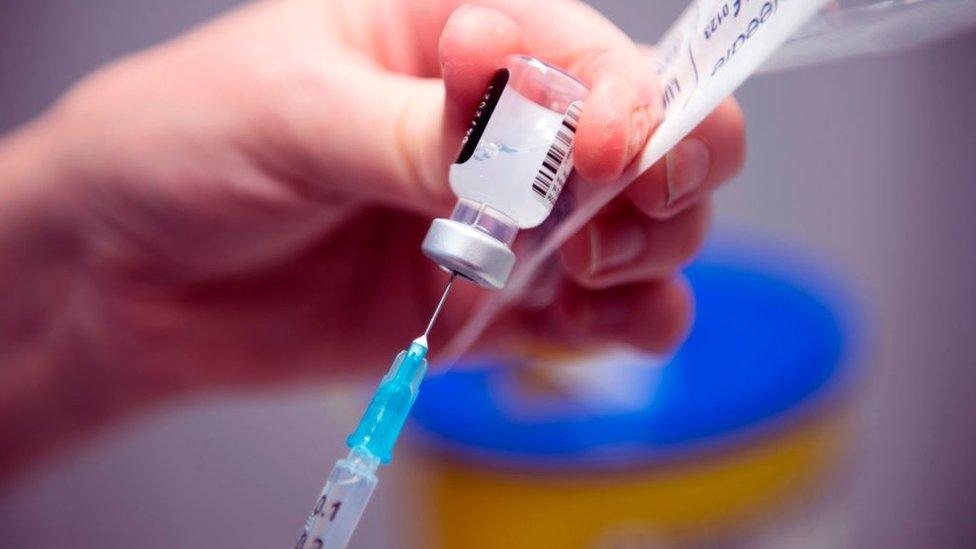Covid in Scotland: People with health issues to be offered vaccine
- Published
- comments
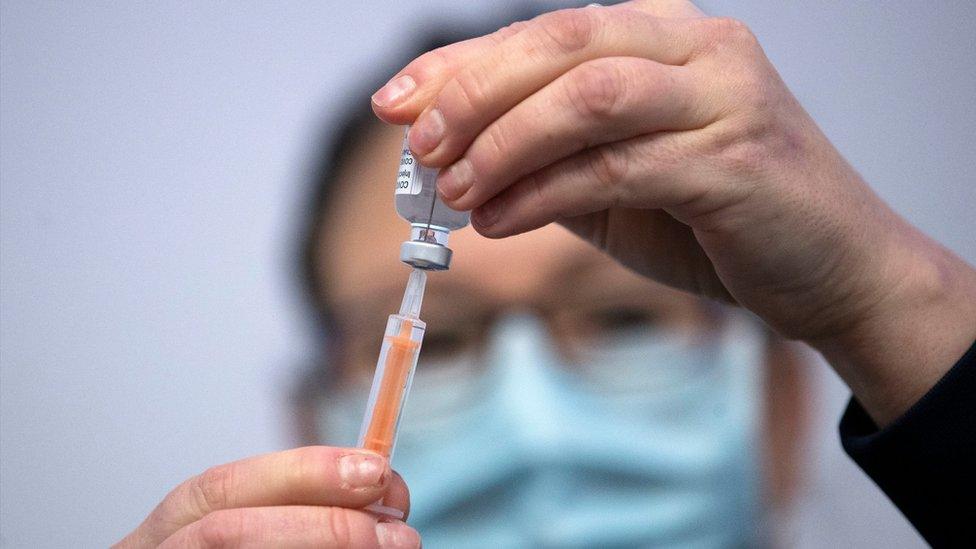
People with underlying health problems are to receive vaccine appointments in the next phase of the roll-out.
The category is being expanded to include people with "mild or moderate" learning disabilities, the Scottish government has announced.
Unpaid carers will also be offered the first dose as part of the next priority group in the vaccine programme.
There are over a million people in this category - the sixth and largest group on the priority list.
First Minister Nicola Sturgeon told her daily briefing that this meant "it will take some weeks to provide first doses to everyone in that group.
"So if you don't receive a letter giving you an appointment this week or next week, I would ask you not to worry, we will get to you as quickly as possible."
Under current targets, everyone in this cohort should expect to get their first dose by early May.
Priority group six already included those with severe or profound learning difficulties.
Ms Sturgeon said it would be expanded to those with mild or moderate learning disabilities, although she added: "We will have some work to do to make sure we are identifying and reaching everyone in that category."
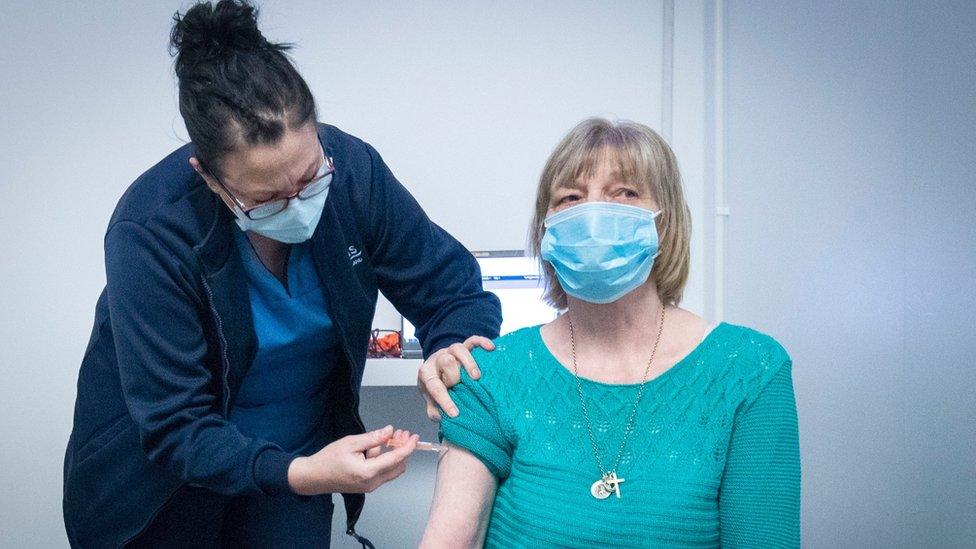
The target for all adults in the UK to receive their first dose by the end of July
Currently the Pfizer-BioNTech and Oxford-AstraZeneca vaccines are being given in Scotland, with both requiring two doses.
Research carried out in Scotland has suggested that the vaccination programme is having a "spectacular" impact on preventing serious illness.
People age 16-64 who have the following health conditions will be next to be invited for the first dose of the vaccine:
a blood cancer (such as leukaemia, lymphoma or myeloma)
diabetes
dementia
a heart problem
a chest complaint or breathing difficulties, including bronchitis, emphysema or severe asthma
a kidney disease
a liver disease
lowered immunity due to disease or treatment (such as HIV infection, steroid medication, chemotherapy or radiotherapy)
rheumatoid arthritis, lupus or psoriasis (who may require long term immunosuppressive treatments)
who have had an organ transplant
have had a stroke or a transient ischaemic attack (TIA)
a neurological or muscle wasting condition
a learning disability
a problem with the spleen, such as sickle cell disease, or those who have had their spleen removed
have a BMI of above 40
are severely mentally ill
Unpaid carers who receive carers' benefits or who have been identified by GPs will be offered an appointment as well.
Carers who do not fall into these categories will be asked to register for their vaccine at a later date through an online portal or the national helpline.
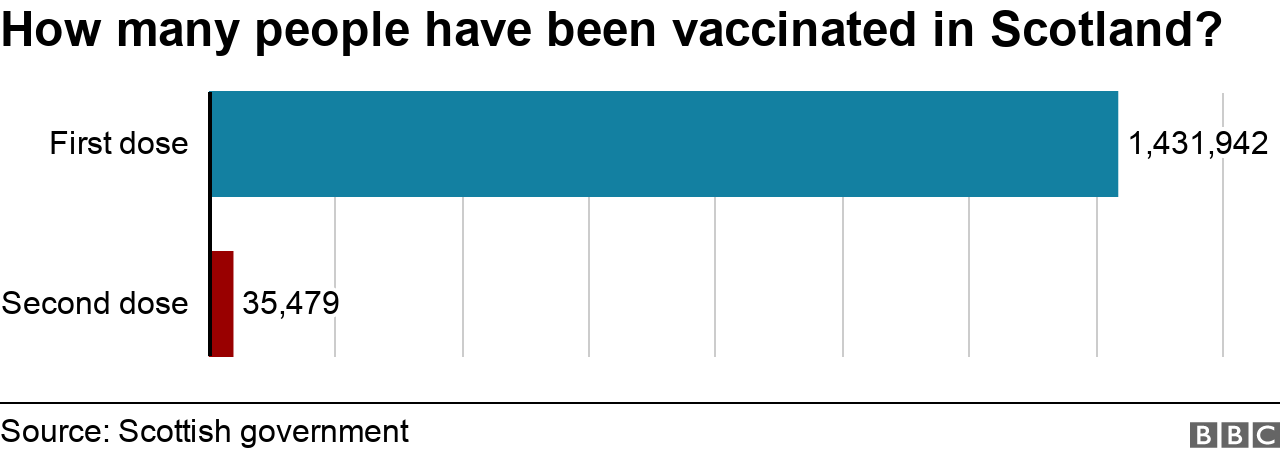
On Sunday the prime minister announced he wanted the vaccine programme to "go further and faster", promising all adults in the UK will be offered their first dose by the end of July.
Ms Sturgeon said on Monday that Scotland could meet that target "if we have the supplies".
She added that the Scottish government was waiting on updated supply forecasts to provide certainty.
Health Secretary Jeane Freeman earlier said that the Scottish government has "had to adjust" the number of appointments going forward due to higher uptake and lower vaccine supply than anticipated.
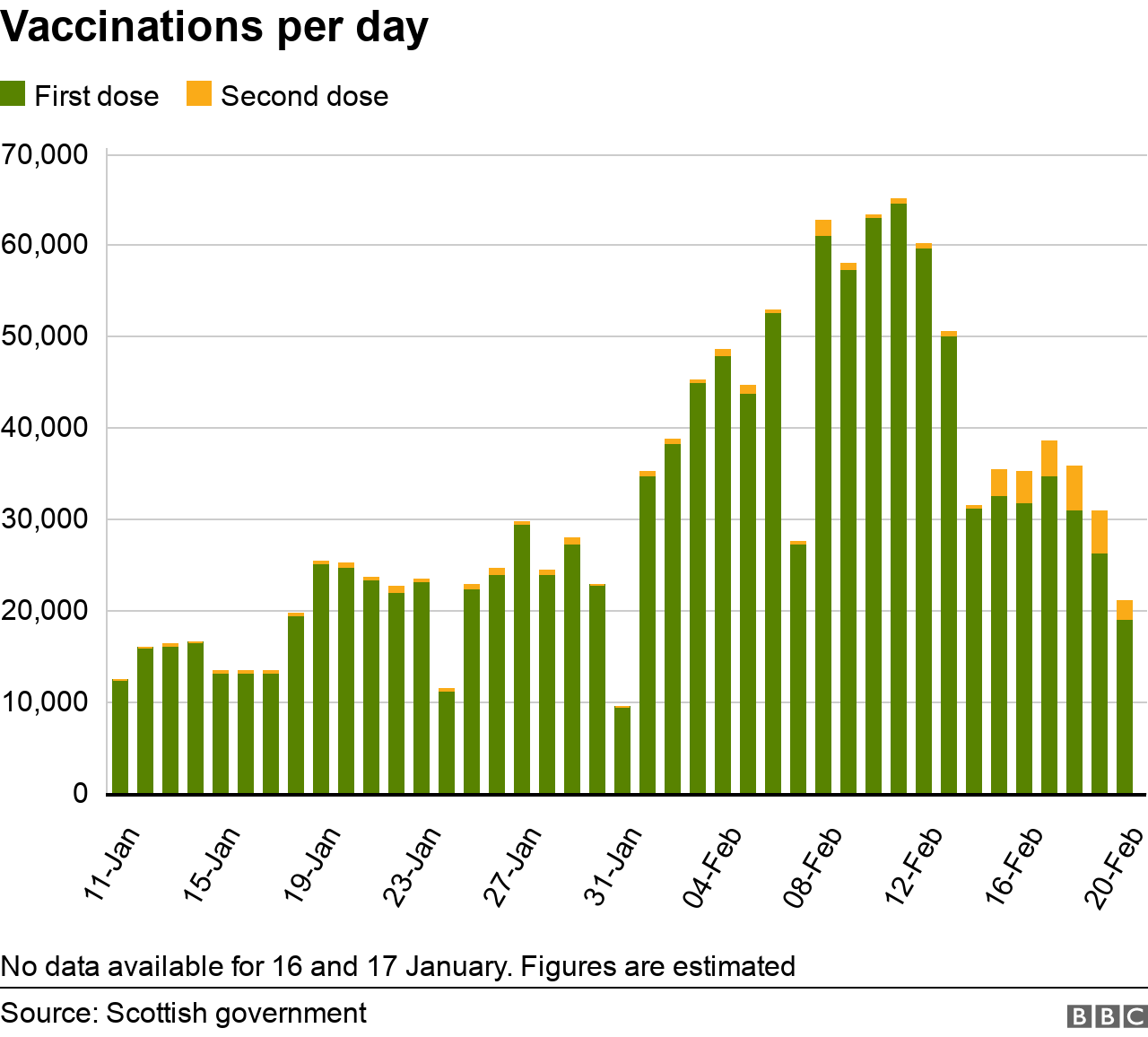
"We must also ensure we have enough vaccine for second doses when they are due as this provides longer lasting protection against the virus," she said.
"All of this will mean that some of our vaccination centres may be less busy in the next couple of weeks."
The Scottish Conservatives shadow health secretary Donald Cameron said that although supplies have slowed, the government should guarantee plans are in place to "immediately" accelerate the rollout once they increase again.
He said: "It is vitally important that the SNP ensures a major effort is made to contact everyone in this group and that nobody misses out.
"That will give confidence we have protected as many as possible of those with underlying health conditions and those caring for loved ones."


Related topics
- Published22 January 2021
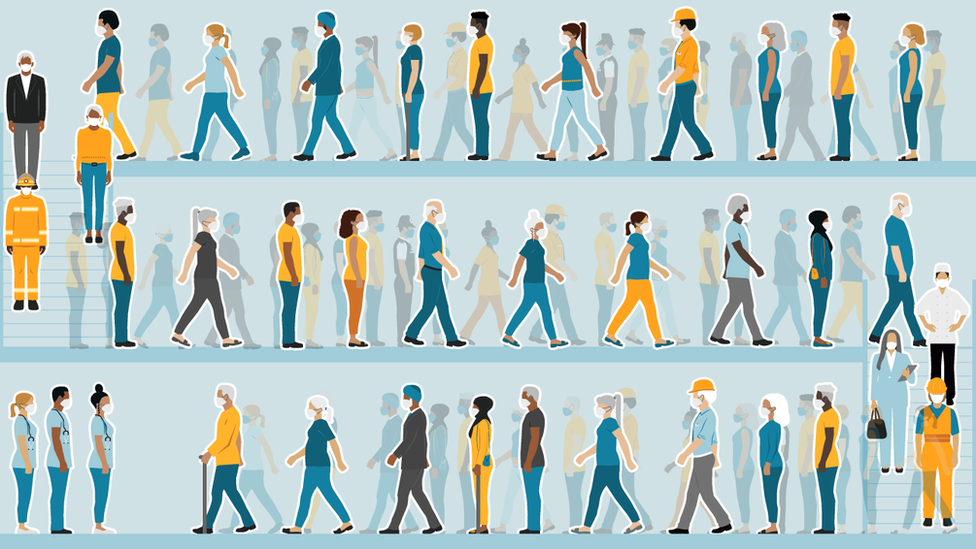
- Published21 February 2021
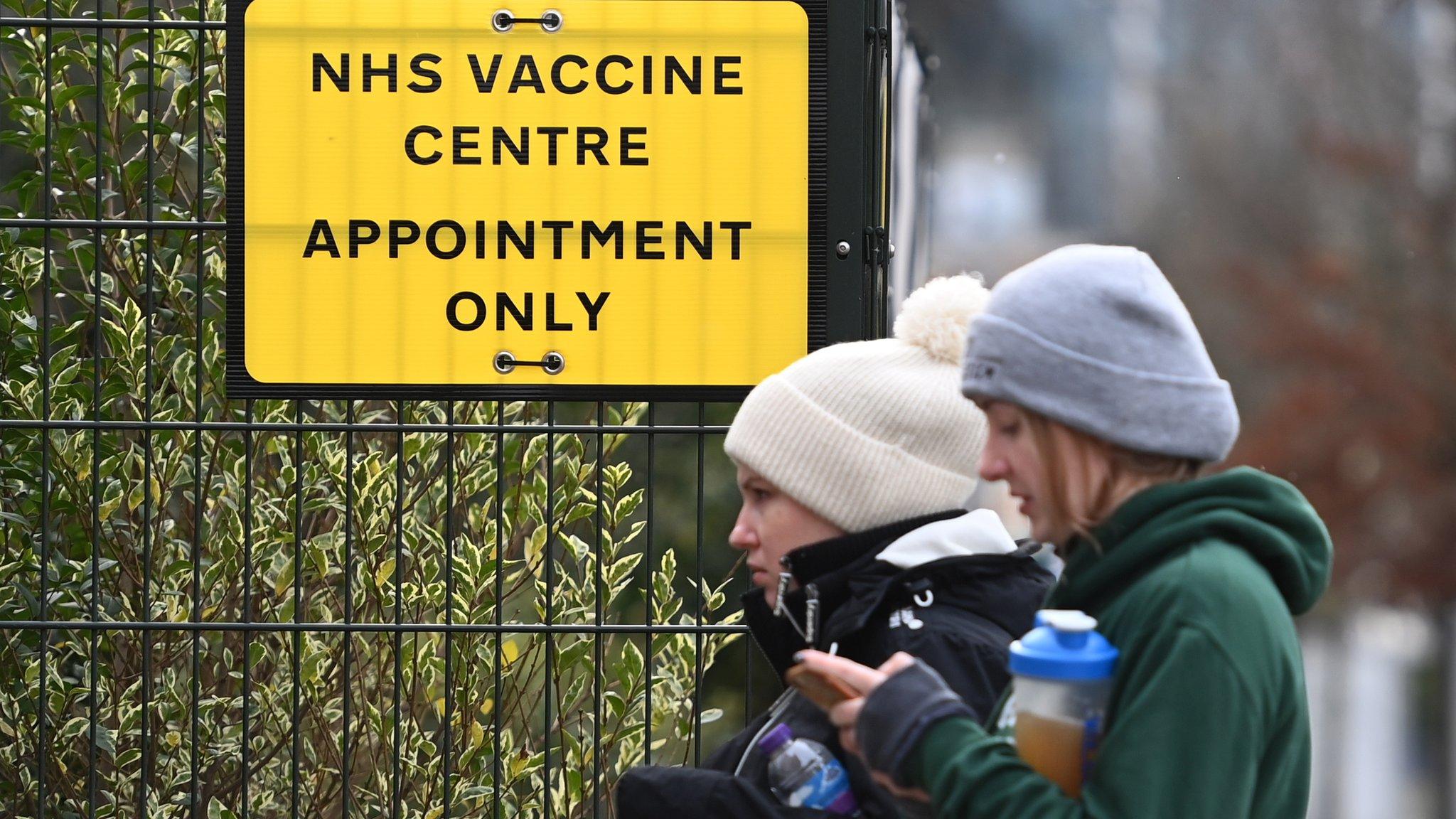
- Published18 February 2021
